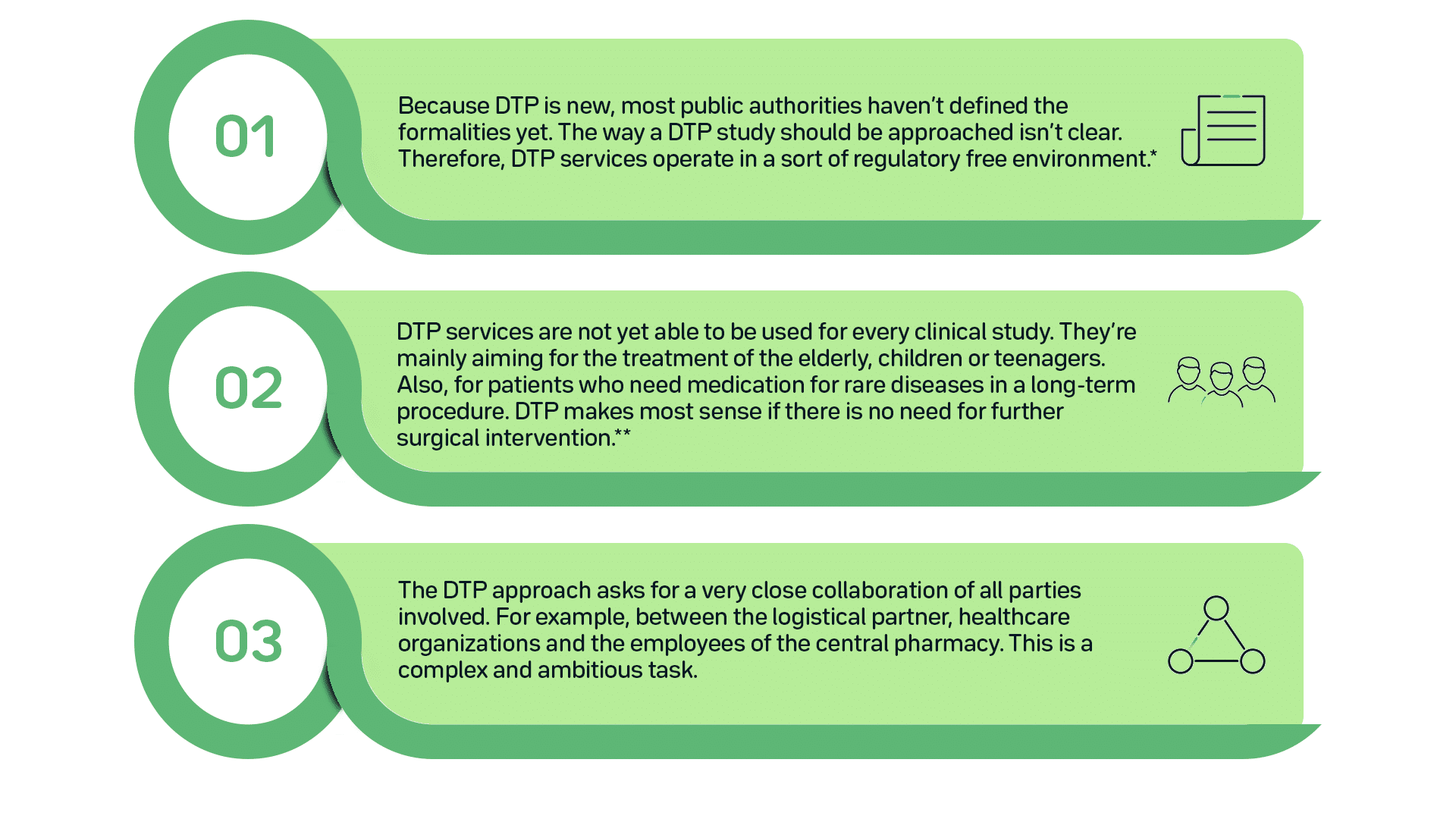Clinical trials are changing. The Direct-To-Patient (DTP) Service puts the patient in the focus of a study, granting easier access for possible participants. Another purpose is to reduce the high number of patient- drop-outs during a clinical trial. Clinical trials with improved educational value and significant cost reduction are the long-term goal.
DTP Services in clinical trials is a continually growing market. In a survey published by the branch website, Clinical Trials Arena in March 2017, over 24 percent of the responding companies answered, they were already using decentralized clinical trials. Another third of the companies not using DTP so far stated, they were going to use it within the next 18 months.
There are several reasons for the turnaround. On one side, recruiting patients for clinical trials is a significant investment, not only of time but also money. On the other hand, keeping the participating patients loyal through the full length of the study is even more challenging. That is why patient recruitment is consuming over 32 percent of clinical trial budgets. Therefore, it’s one of the factors of rising costs for clinical trials.
Nevertheless, in 50 percent of all clinical trials, delays are accruing regarding patient recruitment, which can cause a loss of up to 8 million US Dollars in sales and profits per day. This is the reason, why the number of 30 percent drop-outs during clinical trials have to be significantly lowered. One of the reasons given for their drop-out is the time-consuming visits during the clinical trial in an often far away partnering hospital or clinic.
The advantages of the patient centric approach predominate
For sustainably lowering the number of drop-outs one of the most crucial goals is to make participation in the clinical trial as easy as possible for the patients. That’s where decentralized clinical trials come into play. Its approach sends the medication directly to the patient’s home. A nurse takes biological tissue samples, such as blood, stool, or mesh at home and then sent to the central study laboratory. Therefore, the patient is set into the focus of the clinical trial and is released of the named difficulties.
The requirements for the DTP approach are more complex than before, and the study design becomes more challenging. The need for all participating parties to work together consequently grows. Moreover, regarding the logistical stakeholders the DTP demands higher flexibility and reliability.
Positive numbers at participating patients
The logistics provider Marken explains the DTP approach has a positive effect on the commitment of patients. Besides, the discipline of the studies is the same as in the usual clinical trials done at study centers. The Medical Research Network comments, DTP leads to a raise of 60 percent within patient recruitment, and the commitment of patients throughout the clinical trial is over 95 percent.
Another positive aspect of DTP is the possibility to reach a new variety of participants. Especially people living far away from study centers and people whose health conditions effects their capability of traveling will be able to take part in the studies. Also, because of fewer patients leaving the study while it’s in process, clinical trials can be done faster and with a deeper meaning to the result.
The three most significant obstacles for Direct-To-Patient Services
All this sounds very promising. So why isn’t everyone changing to DTP? Three main obstacles must be overcome for DTP to succeed.

It’s just a matter of time until DTP services will have their breakthrough in the world of clinical trials. The stakeholders who are already successfully using DTP, find themselves in the important role of pioneers. They’ll be the ones clearing the way for the upcoming clinical trials of the future.
We at Tec4med are proud to be part of this progress. With NelumBox, we enable more and more private and professional people around the globe to gain back their flexibility, carefreeness, and freedom. If you like to learn more about how we can help you improve your work with cold chain, feel free to send us an email to info(at)tec4med.com or visit the NelumBox website.
